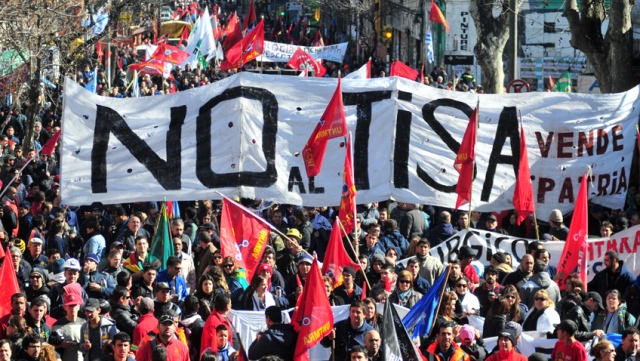
Mass pressure takes Uruguay out of TISA negotiations
The President of Uruguay has officially announced the country's withdrawal from the Trade in Services Agreement TISA following a majority vote by the political council of the governing Broad Front coalition to exit the talks. The decision is a major victory for the trade unions, whose national center PIT-CNT held mass strikes and demonstrations this year in an escalating campaign against participation in TISA, and their civil society allies.

In response to popular pressure, the governing council required all ministries to report on TISA's impact in their specific areas of responsibility. The Ministry of Labour and Social Security concluded that TISA potentially undermined Uruguay's ILO commitments to international labour standards. The Ministry of Industry, Energy and Mines reported that TISA requirements threatened the country's telecommunications, electricity, water and sanitation services, all of which were taken back into public ownership in 1992 (under TISA's institutionalized 'ratchet' this would constitute a treaty violation). Opening up finance would place at risk the state's significant role in banking and insurance. And the Ministry of Agriculture rejected the privatization of government agricultural support services.
"It is remarkable", commented Socialist Party MP Roberto Chiazzaro, "how much people got informed, participated and discussed" - a process on which opponents of TISA and the current crop of 'trade' deals (TTIP, TPP, and the EU-Canada CETA) can build on. Uruguay's withdrawal leaves Australia, Canada, Chile, Colombia, Costa Rica, the European Union, Hong Kong, Iceland, Israel, Japan, Korea Liechtenstein, Mauritius, Mexico, New Zealand, Norway, Pakistan, Panama, Paraguay, Peru, Republic of Korea, Switzerland, Taiwan Turkey and the United States to continue the negotiations, driven by the wealthy core of "Really Good Friends of Services".
 Facebook
Facebook Google+
Google+ Reddit
Reddit Twitter
Twitter






